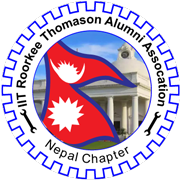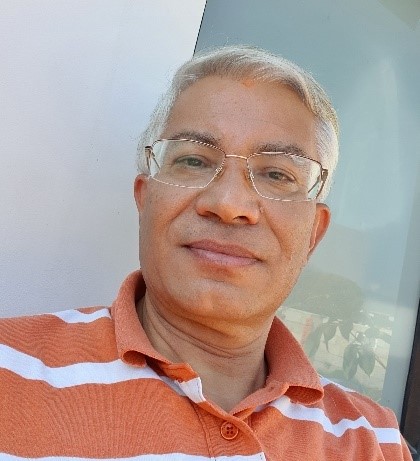Name
Raj Babu Shrestha
Academic degrees
Bachelor of Engineering in Civil Engineering, University of Roorkee (IIT Roorkee), Roorkee, India, 1986
Master of Science in Sanitary Engineering, IHE, Delft, The Netherlands, 1991
Master of Arts in Sociology, Tribhuvan University, Kathmandu, Nepal, 2000
Professional experience
35 years
Expertise
Water Supply, Sanitation and Hygiene (WASH); Infrastructure Development; Poverty Alleviation; Policy and Strategy Formulation; Program Development and Management, Community Development and Empowerment, and, Program Monitoring and Evaluation.
Current employment
Advisor, Urban Environment Management Society; Freelance Consultant
Tagline
“The best decisions are not those that are scientifically prescribed but collaboratively developed in collaboration and partnership with communities”
Mr. Raj Babu Shrestha is Sanitary Engineer and Development Practitioner. He completed his Bachelor Degree in Civil Engineering with Honors from University of Roorkee, India (Now IIT Roorkee) in 1986 and Master of Science in Sanitary Engineering from IHE Delft, The Netherlands in 1991. He later also completed a graduate degree in Sociology from Tribhuvan University, Nepal in 2000.
Raj Babu has been working around Water Supply, Sanitation and Hygiene (WASH), Infrastructure development and Poverty alleviation over 35 years in national and international organizations. In his different roles, he has been active in Policy and Strategy Formulation, Program Development and Management, Community Development and Empowerment, and, Program Monitoring and Evaluation. Furthermore, in his different capacities, he has worked closely with Government of Nepal (GoN), bilateral and multilateral donor agencies, NGOs and private sector organizations in coordination with local government and other sectoral agencies.
He recently led Urban Environment Management Society (UEMS) as an Executive Director and is currently an advisor for the institution. Prior to joining UEMS, he worked as the Executive Director for Poverty Alleviation Fund (PAF), a government instrument to implement targeted program in poverty alleviation. During his tenure he contributed to the formulation of modalities and procedures that ensured programs reached vulnerable communities. Furthermore, the programs were geared to be socially inclusive and demand driven with direct community funding for income generation and infrastructure development. He was involved in the concerted effort in poverty alleviation and community institutional development for sustainability across Nepal.
Before joining PAF, he had been actively contributing to uplifting communities as the Executive Director of Rural Water Supply and Sanitation Fund Development Board (RWSSFDB) by implementing innovative demand-driven community based rural water supply and sanitation projects that integrate hygiene education and livelihood improvement.
He started his career working as an Engineer for the Ministry of Local Development (MoLD), Ministry of Housing and Physical Planning (MoHPP), and Department of Water Supply and Sewerage (DWSS) and supported the formulation of key documents such as “National Sanitation Policy-1993” and “Guidelines/ Manuals/Action Plan for Planning and Implementation of Sanitation Program”. This opened an opportunity to get involved in project preparation as a team member and in field testing project Janata Ko Khane Pani Ra Sarsafai (JAKPAS) managed by the World Bank which led to establishment of RWSSFDB by the GoN, where he later served as Deputy Executive Director and Executive Director.
As a national consultant, he served for various organizations such as GIZ, WHO and FINNIDA. Beyond his experiences within Nepal, he has also served as an international consultant for World Bank supported projects in Laos, Afghanistan, and India. Throughout his career Raj Babu has spent time traveling across Nepal and beyond interacting and working directly with communities which have grounded him to the on-ground realities and experiences. During his free time, he enjoys gardening and urban farming.


